Read the report
Read our 'Waves of Profit' report and learn how the tourism industry profits from the Taiji dolphin killings.
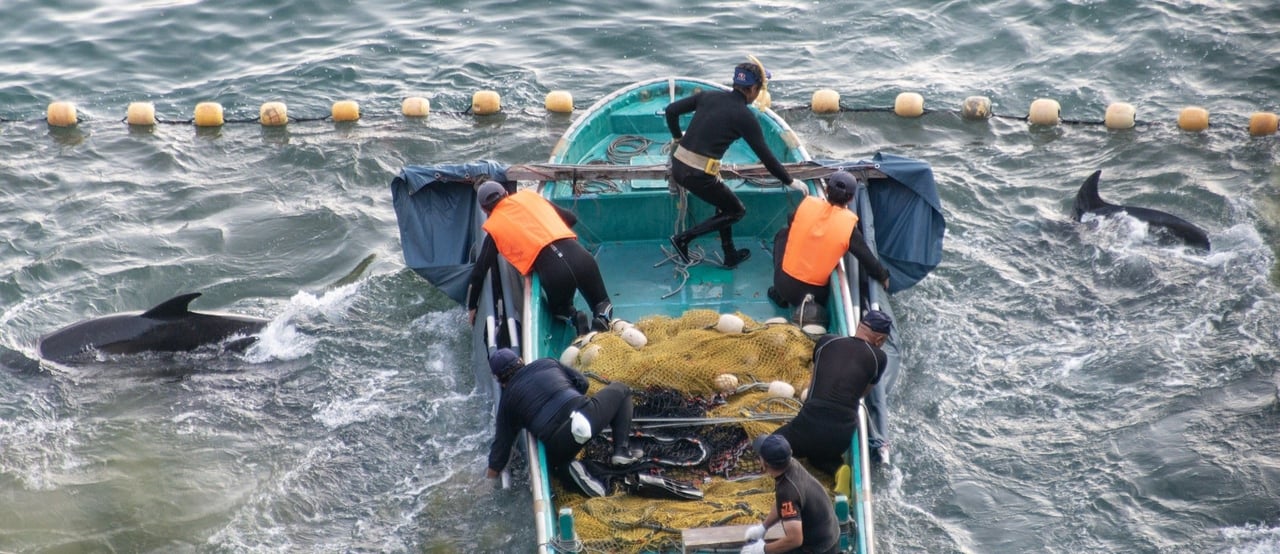
While dolphin meat only generates modest profits, a fully trained dolphin can fetch up to US$150,000 when sold internationally to a dolphin entertainment venue. This shows that tourism is the main profit driver of these brutal hunts.
Read our 'Waves of Profit' report and learn how the tourism industry profits from the Taiji dolphin killings.
Our report found a whopping 107 dolphin entertainment venues across 17 countries with links to purchasing dolphins from Taiji’s dolphin hunts. Global travel companies such as Trip.com, Groupon, Traveloka, GetYourGuide, TUI, and Klook are riding the wave of cruelty by selling tickets to some of these venues and profiting from dolphin cruelty.
After being notified of our findings, only Klook has taken a step in the right direction by actively reviewing their Taiji-linked offerings and has removed some of them.
Based on the disastrous animal welfare impacts, and absolute brutality involved in these hunts, it is completely indefensible for global travel companies to continue sending unsuspecting travellers to venues who have sourced dolphins from Taiji.
This is corporate irresponsibility at its worst.
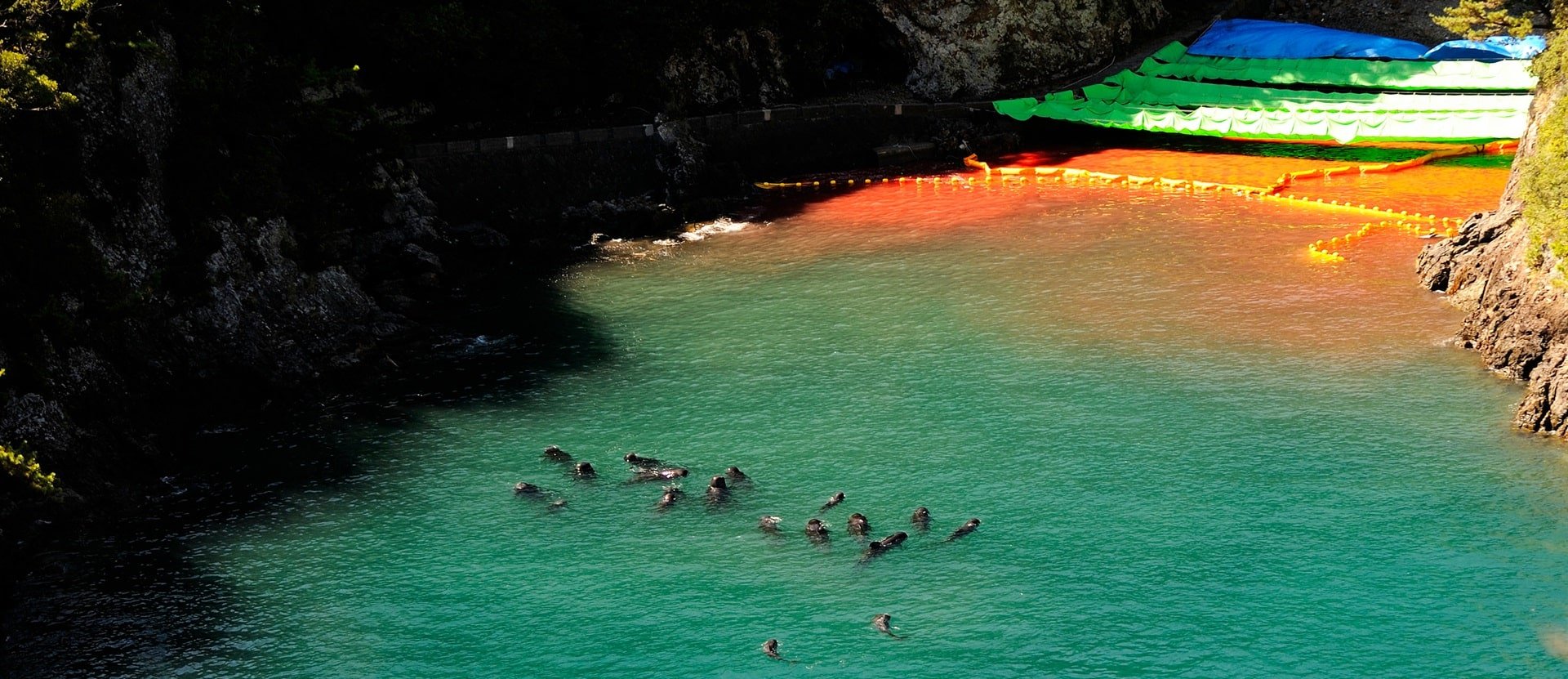
From September to March, dolphin hunters in the small coastal town Taiji in Japan gather to hunt down pods of dolphins or other small whales who pass through the waters to migrate.
These highly intelligent animals use echolocation to navigate the vast ocean and communicate with one another by squeaking, clicking and whistling.
The hunters are well aware of this. And so, to disorient the dolphins and disrupt their communication, they lower steel poles into the ocean and bang on them with hammers, creating a sound wall underwater.
As a result, the stressed dolphins try to swim away from the sound but are unfortunately tricked into entering an area commonly known as the Cove.
This is where a brutal “selection process” begins for the dolphin meat trade and the captive dolphin entertainment industry.
For the dolphins sold to entertainment venues, the stress and trauma of the wild capture followed by a captive environment can even prove fatal. While those who survive will spend the rest of their lives in a barren pool deprived of every freedom they were born to experience.
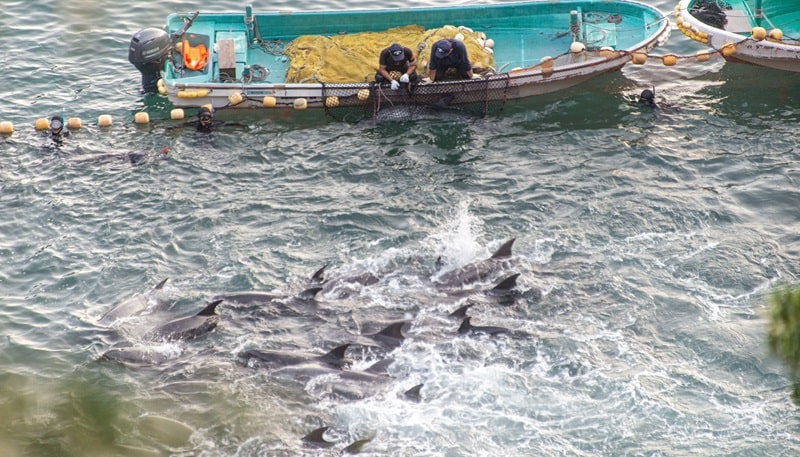
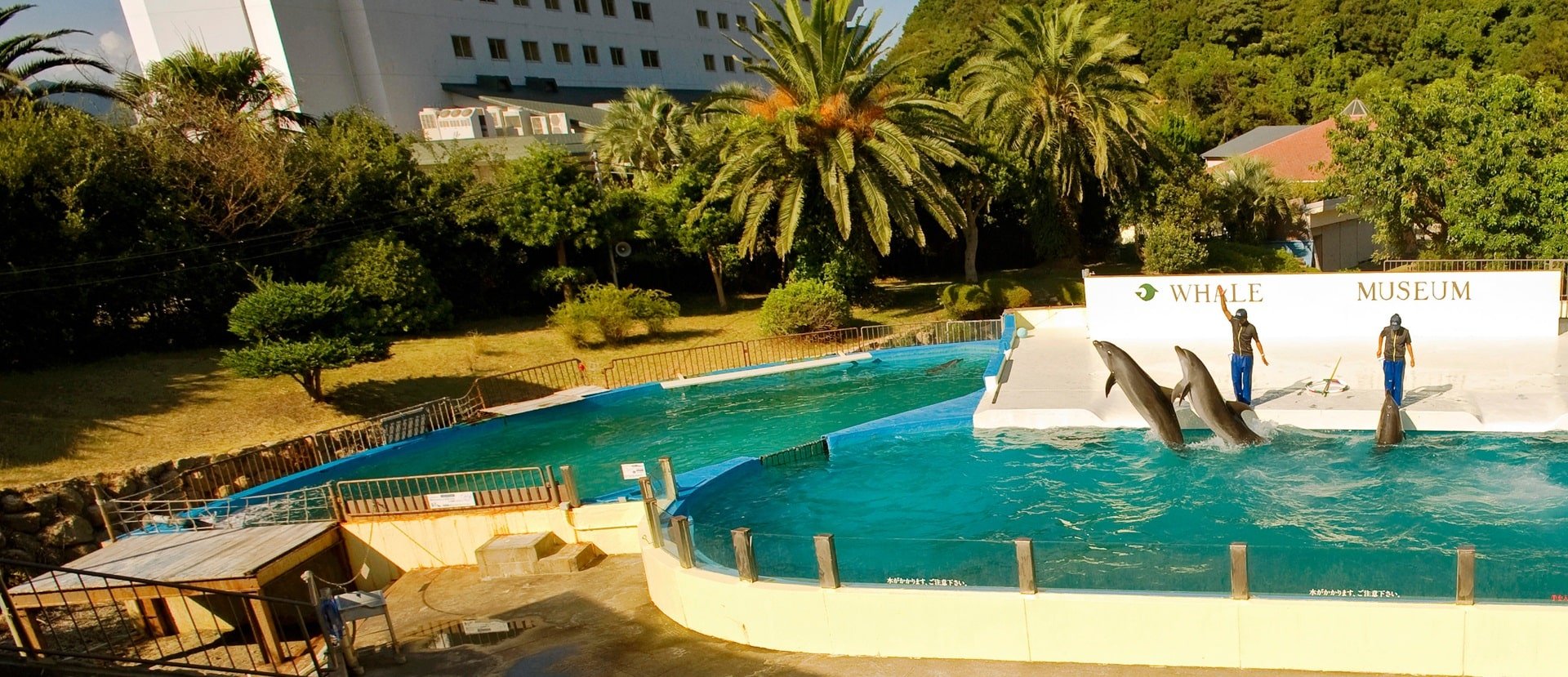
In the wild, dolphins form close social bonds in pods. Unfortunately, these sensitive and intelligent beings are brutally ripped from their family pods during these hunts which can be an extremely traumatic ordeal for them.
They are either slaughtered on site for their meat or made to endure gruelling journeys to captive dolphin entertainment venues across the globe to perform for unsuspecting tourists.
As most tourists put their trust in major travel companies for recommendations, the promotion and sale of wildlife entertainment venues can lead them to assume these activities are acceptable, or even beneficial for the animals themselves.
Any travel company promoting or selling captive dolphin entertainment is fuelling the demand for wild-caught dolphins for entertainment, such as those captured in Taiji.
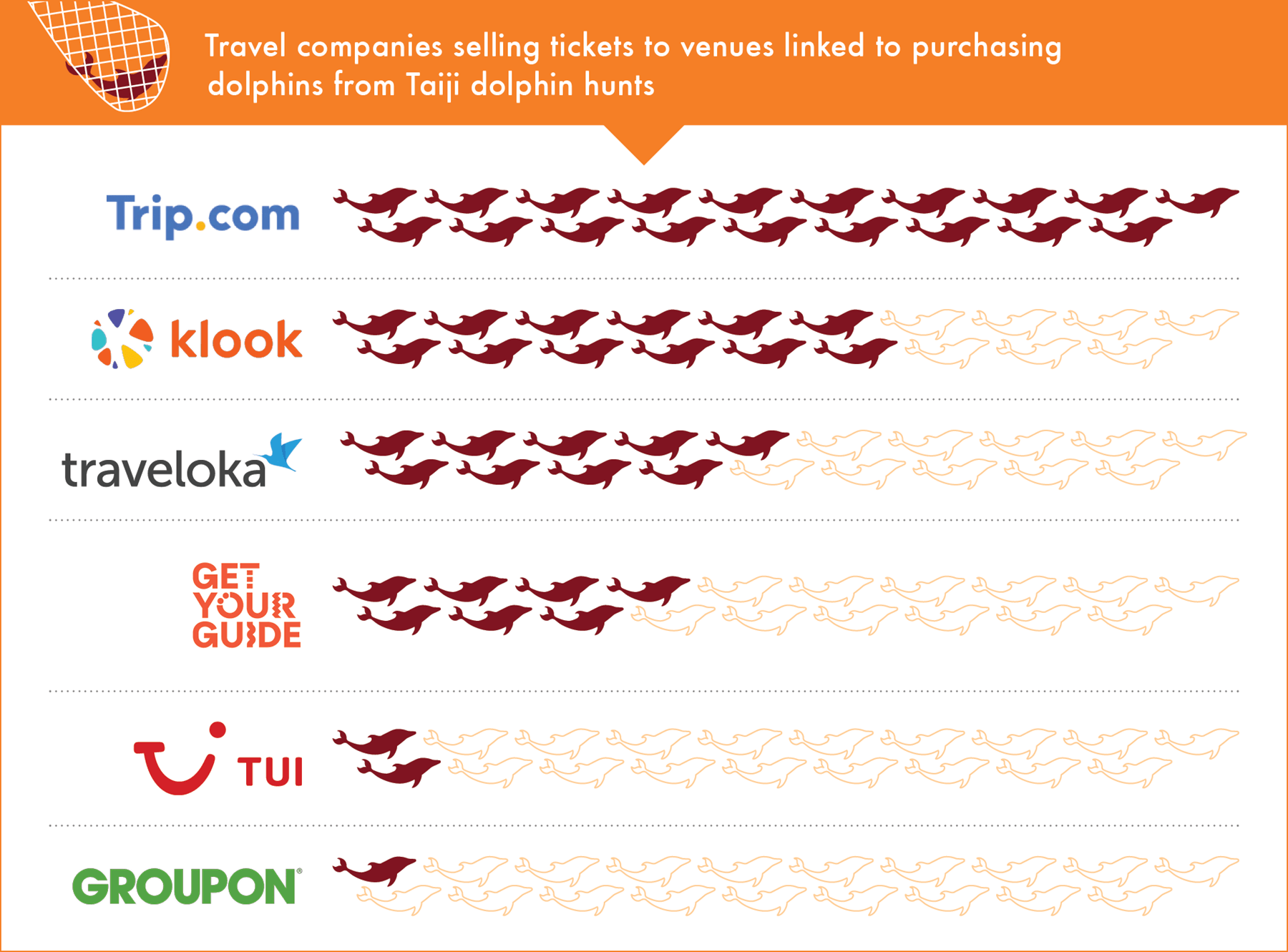
As long as travel companies continue to sell tickets to dolphin entertainment venues, they are directly contributing to the suffering of these intelligent marine mammals.
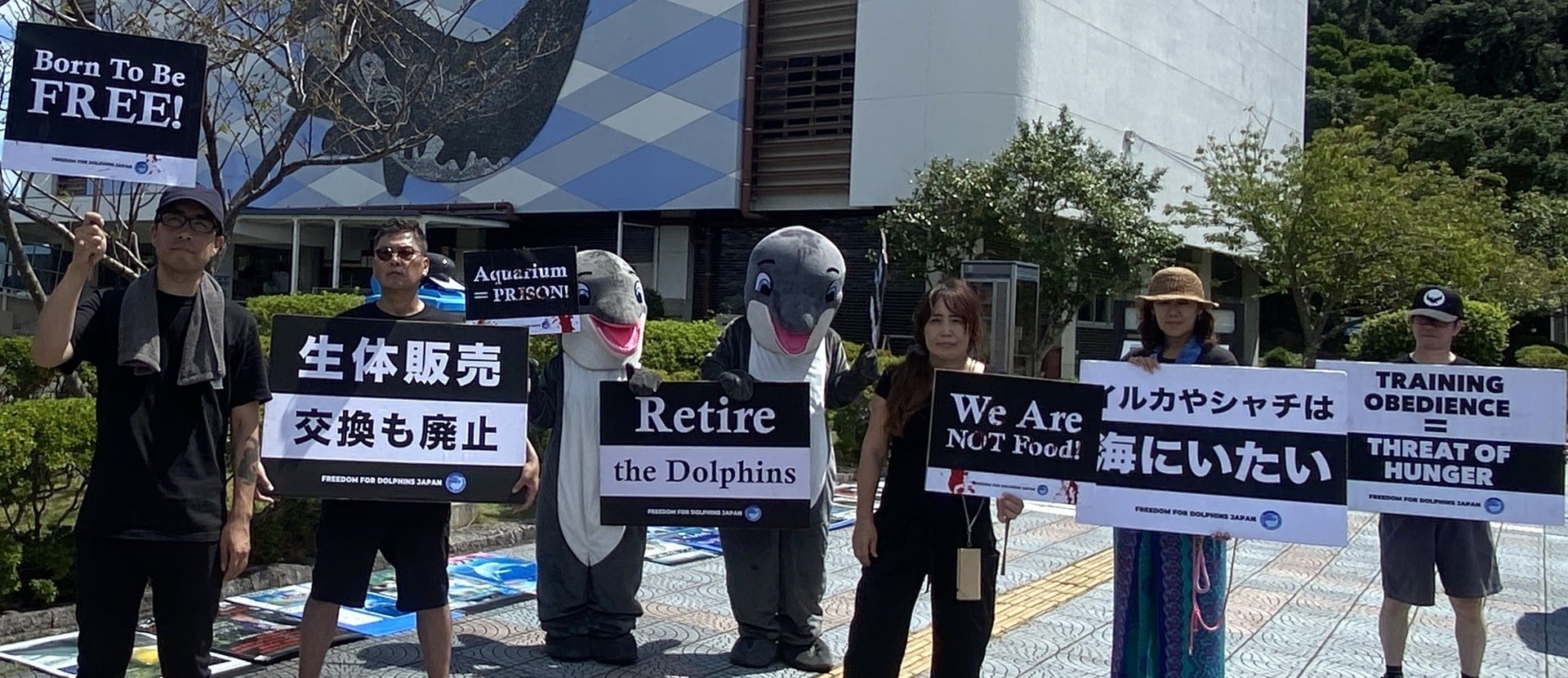
Travel companies and tourists have the power to end the cycle of wild capture and exploitation of dolphins.
Travel companies must take responsibility by implementing robust animal welfare policies and immediately end the promotion and sale of tickets to captive dolphin entertainment venues.
Meanwhile, tourists can play a pivotal role in protecting dolphins by never visiting a captive dolphin venue and ensuring that the travel company they book their holidays with has an animal welfare policy that extends to dolphin entertainment.
Together, we can work towards ensuring that dolphins are able to thrive in their natural ocean homes, free from the confines of captivity and exploitation.
Read our 'Waves of Profit' report and learn how the tourism industry profits from the Taiji dolphin killings.
Dolphins in Taiji are violently captured and sold into a lifetime of captivity for profit. Will you help protect them?
Dolphins are intelligent and sociable wild animals. They belong in the ocean, not bred in captivity for entertainment.